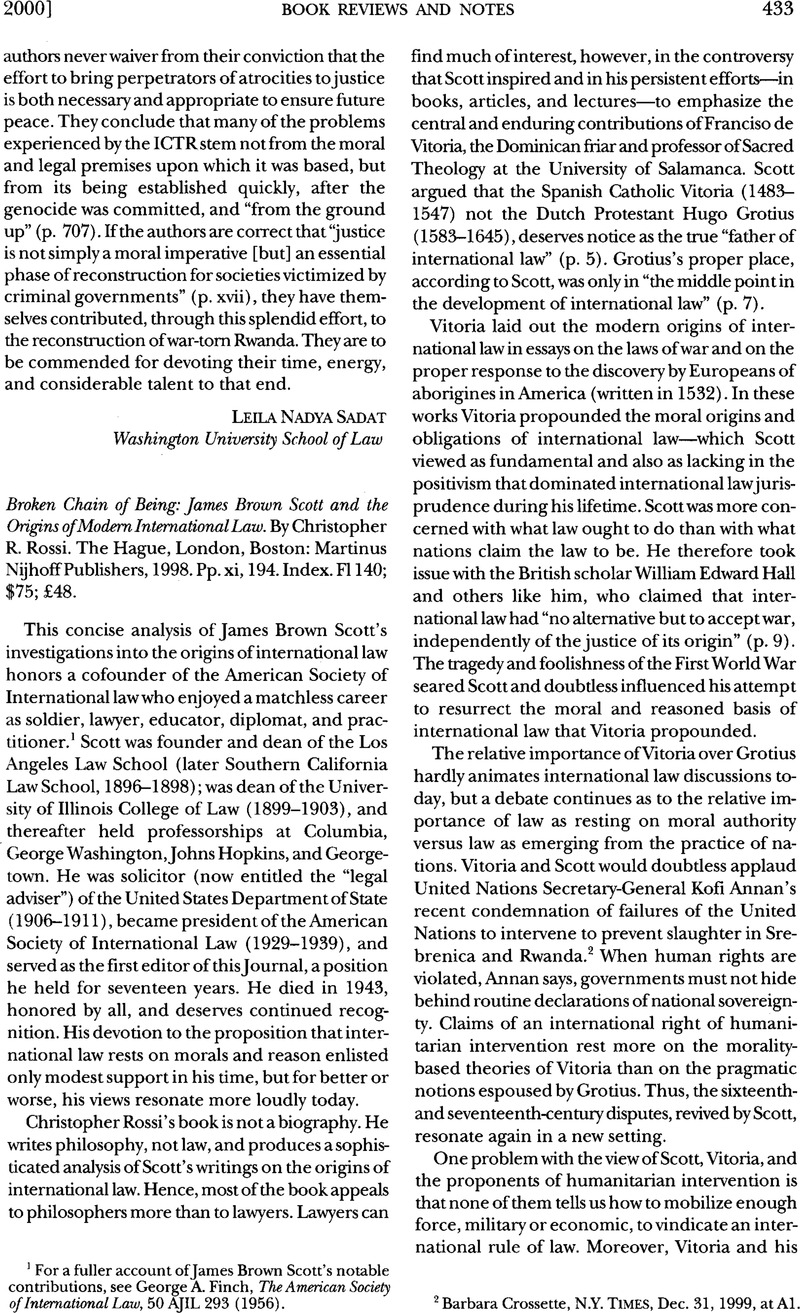No CrossRef data available.
Article contents
Broken Chain of Being: James Brown Scott and the Origins of Modem International Law. By Christopher R. Rossi. The Hague, London, Boston: Martinus Nijhoff Publishers,,1998. Pp. xi, 194. Index. FI 140; $75;£48.
Published online by Cambridge University Press: 27 February 2017
Abstract

- Type
- Book Reviews and Notes
- Information
- Copyright
- Copyright © American Society of International Law 2000
References
1 For a fuller account of James Brown Scott’s notable contributions, see George A. Finch, The American Society of International Law, 50 AJIL 293 (1956).
2 Barbara Crossette, N.Y. Times, Dec. 31, 1999, at A1.
3 “The common law is not a brooding omnipresence in the sky, but the articulate voice of some sovereign, or quasi-sovereign that can be identified.” Southern Pacific v. Jensen, 244 U.S. 205, 222 (1917) (Holmes., J., dissenting).
4 Plenitude is the “condition of being absolutely full in quantity, measure, or degree.” 11 Oxford English Dictionary 1040 (2d ed. 1989).
5 See J. Stone, ‘Non Liquet’ and the Function of Law in the International Community, 1959 Brit. Y.B. Int’l L. 124.


